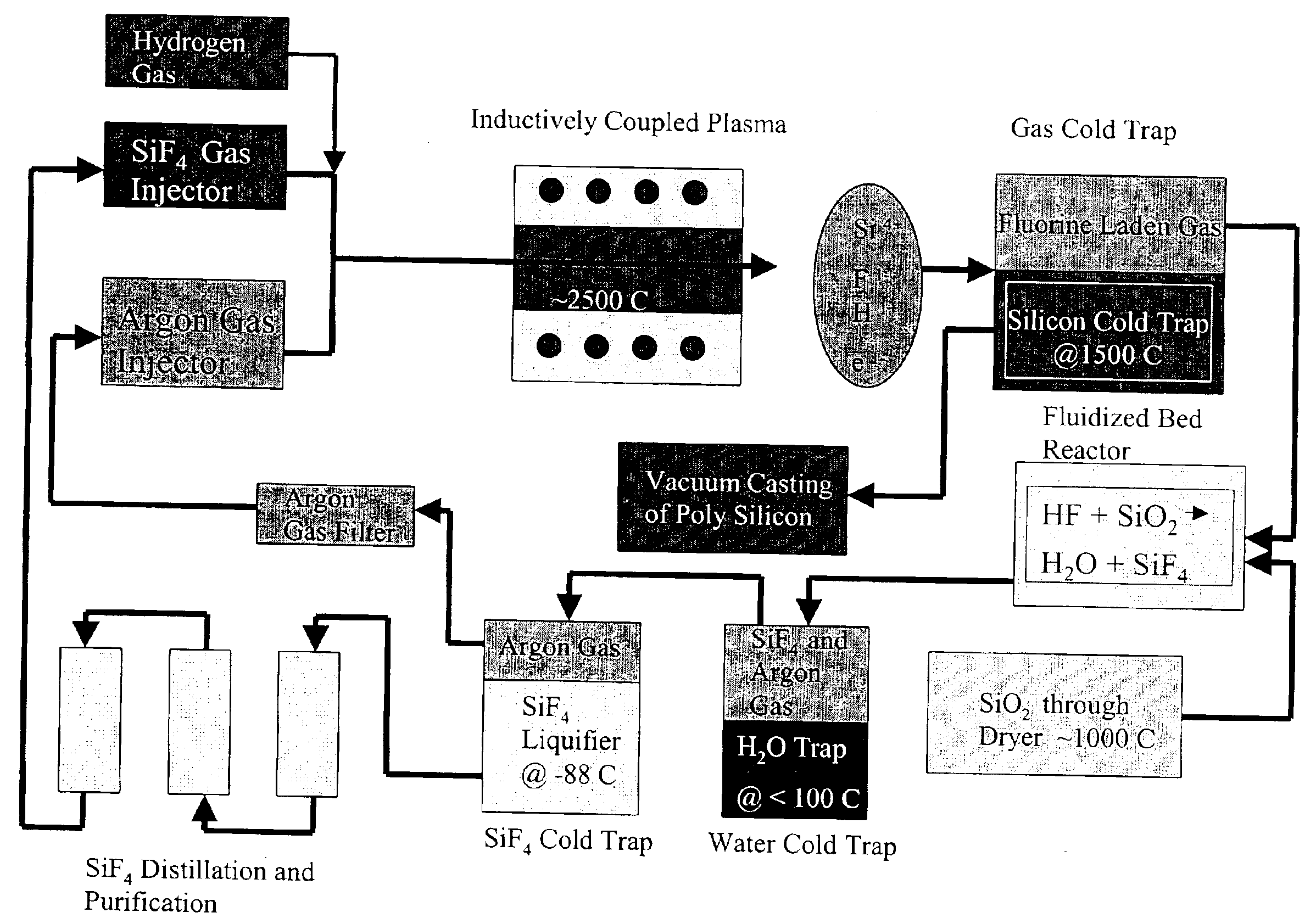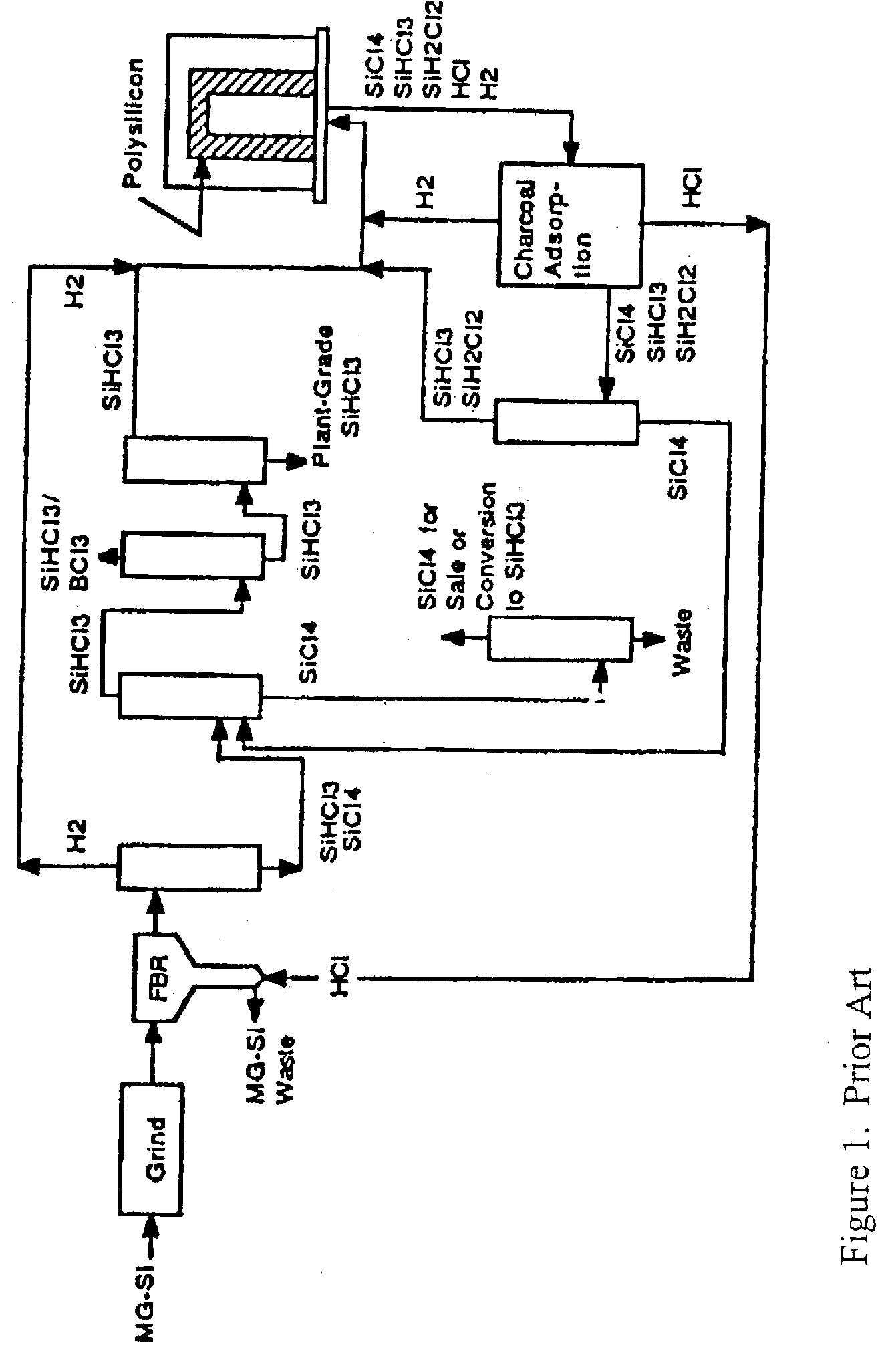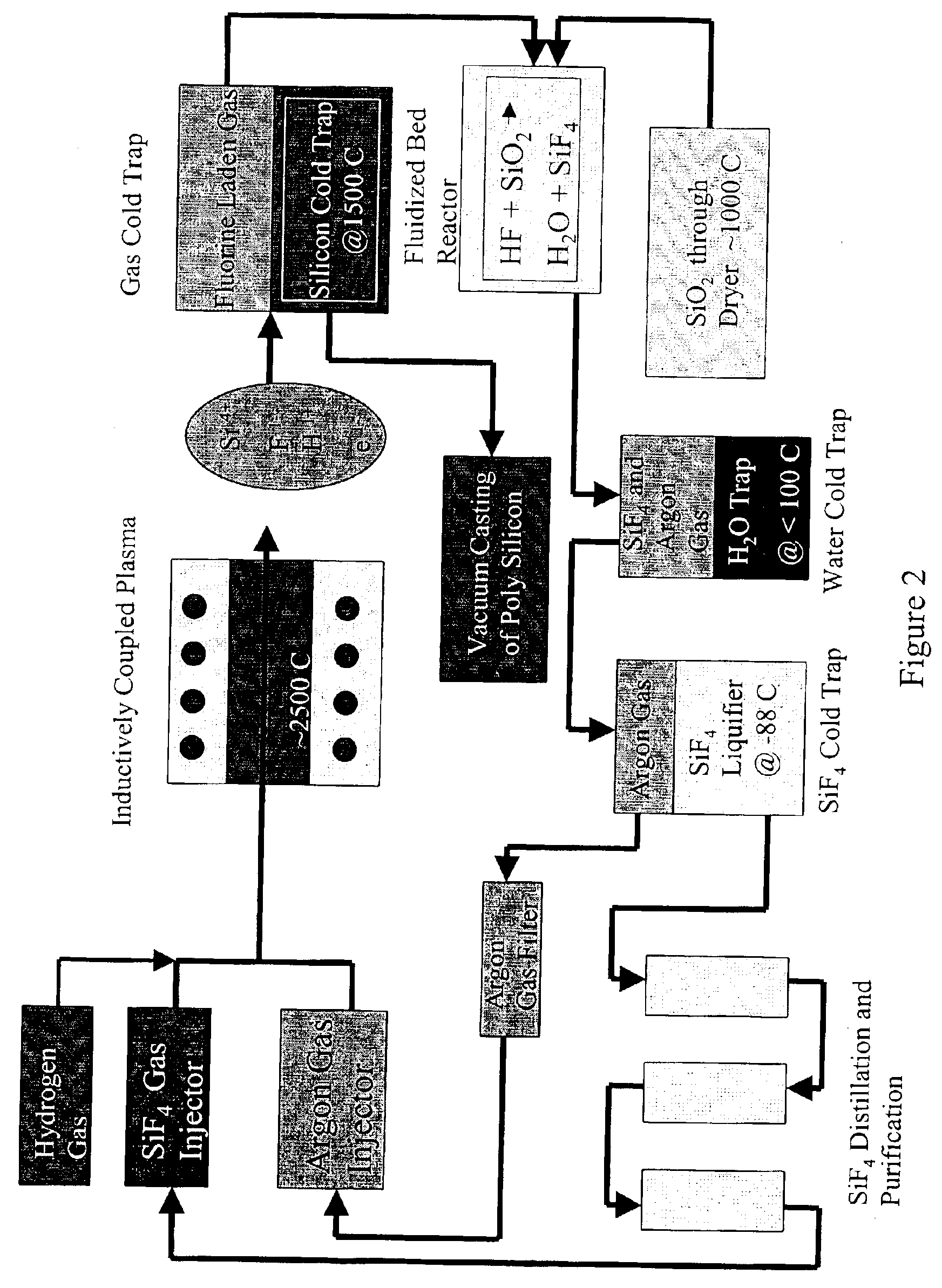Plasma production of polycrystalline silicon
a technology of polycrystalline silicon and polycrystalline silicon, which is applied in the direction of silicon compounds, chemical/physical/physical-chemical processes, energy-based chemical/physical/physical-chemical processes, etc., to achieve the effects of lowering the cost of producing semiconductor grade silicon, reducing containment costs, and high condensation temperatures
- Summary
- Abstract
- Description
- Claims
- Application Information
AI Technical Summary
Benefits of technology
Problems solved by technology
Method used
Image
Examples
Embodiment Construction
[0017]The present invention encompasses a method of transferring silicon from SiO2 to polysilicon without the production of metallurgical grade silicon or the use of a metallurgical grade silicon intermediate. The invention is embodied in a process utilizing an inductively coupled plasma in the presence of hydrogen to break down a silicon halide and the subsequent reformation of the silicon halide via the reaction between the halide gas and silica feedstock in a fluidized bed reactor.
[0018]In one embodiment of the invention, the process features a fluorine based system. Referring to FIG. 2, SiF4, hydrogen and argon are injected into an inductively coupled plasma operating at a temperature of approximately 2500° C. A plasma is defined as a luminous gas containing a significant fraction of ionized atoms or molecules. Plasmas, therefore, are considered to be gaseous conductors. As such, plasmas readily interact with magnetic fields, making it possible to couple a plasma to a high frequ...
PUM
| Property | Measurement | Unit |
|---|---|---|
| temperature | aaaaa | aaaaa |
| temperature | aaaaa | aaaaa |
| temperature | aaaaa | aaaaa |
Abstract
Description
Claims
Application Information
 Login to View More
Login to View More - R&D
- Intellectual Property
- Life Sciences
- Materials
- Tech Scout
- Unparalleled Data Quality
- Higher Quality Content
- 60% Fewer Hallucinations
Browse by: Latest US Patents, China's latest patents, Technical Efficacy Thesaurus, Application Domain, Technology Topic, Popular Technical Reports.
© 2025 PatSnap. All rights reserved.Legal|Privacy policy|Modern Slavery Act Transparency Statement|Sitemap|About US| Contact US: help@patsnap.com



